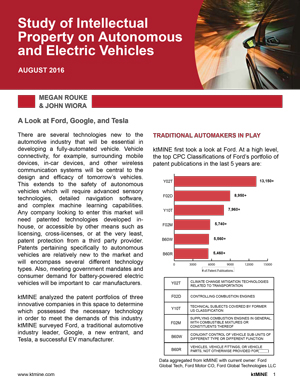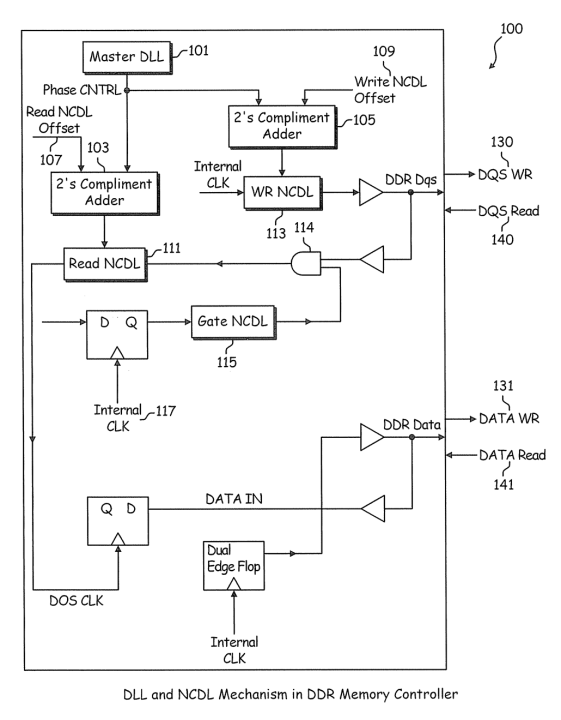Since ktMINE’s August 2016 Study of Intellectual Property on Autonomous and Electric Vehicles, there has been quite a bit of activity involving technology acquisitions by auto companies. Recently, it was announced that Renault SA and Nissan Motor Corp will buy Sylpheo, a French software company, in order to make the “next generation of connected cars and other advanced technologies.” As mentioned in the study, this area is ripe for acquisitions and car companies will need patent technologies from outside of the automotive space. Renesas Electronics Corp, a Japanese company, had earlier announced that it was buying Intersil Corp, an American chipmaker. Renesas has plans to use the company to expand its chip technology into the automotive industry as chip sales for handheld devices and mobile phones have slowed. As acquisitions in this area heat up, we can infer that in the future other automotive leaders will be looking to acquire companies to bring new technologies in-house.
Taking a look at Intersil Corp’s patent portfolio, its top patent classifications are:
- H01L – SEMICONDUCTOR DEVICES
- H02M – APPARATUS FOR CONVERSION BETWEEN AC AND AC, BETWEEN AC AND DC, OR BETWEEN DC AND DC, AND FOR USE WITH MAINS OR SIMILAR POWER SUPPLY SYSTEMS
- Y02B – INDEXING SCHEME RELATING TO CLIMATE CHANGE MITIGATION TECHNOLOGIES RELATED TO BUILDINGS, e.g. INCLUDING HOUSING AND APPLIANCES OR RELATED END-USER APPLICATIONS
- H03F – AMPLIFIERS
- H03K – PULSE TECHNIQUE
Of the companies ktMINE assessed, Ford has been the most active in acquiring new companies by purchasing SAIPS LTD, an Israeli machine learning company, as well as Chariot, a start-up that “provides a local on-demand shuttle service with dynamic routing capability.” As Ford continues to develop patents and new technologies in-house, it seems that the company is also looking to invest more heavily in acquisitions that will strengthen its position in the market for a fully autonomous vehicle. Reuters reported that Ford has been outspent in this area in the past by both Toyota and GM. As for Tesla, the pending Solar City acquisition would bolster its solar energy IP holdings, as Solar City Corp has more than 400 patents relating to solar photovoltaic modules, and it could be strategically valuable from a patent perspective. We have yet to see how this might play out in the autonomous vehicles space, though it can be assumed that it will be helpful in building the next-generation EV.
Though BYD isn’t reporting any noteworthy purchases, the Chinese LeEco Corporation has announced just over $1 billion dollars raised in funding to bring its electric, fully automated sedan to the market which is touted as a close competitor to Tesla’s EVs.
 Download the August 2016 Report Here
Download the August 2016 Report Here



